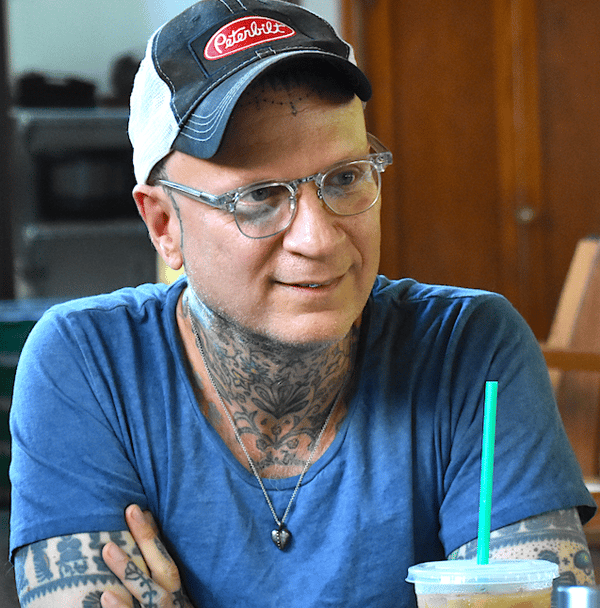Creating & Experiencing a Felt Shift in Life (Focusing in Meditation)
Dharmapunx NYC
josh korda
4.8 • 886 Ratings
🗓️ 23 August 2017
⏱️ 50 minutes
🧾️ Download transcript
Summary
Transcript
Click on a timestamp to play from that location
| 0:00.0 | So tonight I'm going to talk about one of my heroes who was actually not a Buddhist but his psychology was wound up being so Buddhist that now many teachers and of course therapists he was a |
| 0:17.7 | psychologist and a philosopher integrate his work he was a man who preceded John Cabotzan, who in the 1970s created |
| 0:28.0 | mindfulness-based stress reduction. His name was Eugene Gendlin and he was born in Vienna in the 1930s and escaped the Nazis. |
| 0:40.0 | His family was Jewish on the last boat out of Austria. |
| 0:45.0 | And he wound up living mostly in New York and so I'll talk about his practice focusing which has enormous overlaps with Buddhist |
| 0:58.3 | mindfulness and and self-therapy practices in general. |
| 1:04.4 | And you can see if you like the method that he proposed or not. |
| 1:10.0 | And so I'm going to start out with a little bit of the background. |
| 1:16.0 | We construct our sense of self, who I am, |
| 1:22.0 | by internalizing what's said about us by others when we're children, often in our family |
| 1:27.8 | system, and also by observing the way people interact with each other and seeing what kind of behavior gets attention |
| 1:38.0 | and kindness and what kind of, especially attention is what children deeply want more than anything else. |
| 1:44.0 | Human beings are attention seeking missiles and we will do anything to get attention. |
| 1:50.0 | All of the major cluster B personality disorders stem from the extreme links we tried |
| 1:58.6 | to get attention and family systems that were not very attentive. |
| 2:05.0 | So we construct a self in a couple of different ways, a sense of who we are. |
| 2:11.0 | We have an egoic self which is essentially all of the attributes we believe that we have |
| 2:18.2 | based on what people tell us. But then there's also a shadow self which is essentially I'm borrowing a term by |
| 2:26.7 | young but it's essentially emotions and impulses that we have but we see from watching other people, |
| 2:36.0 | or we see from the way our parents regard us |
| 2:38.0 | when we have these feelings and impulses, |
| 2:41.0 | that they lead to rejection, shame, blame, being punished. |
... |
Please login to see the full transcript.
Disclaimer: The podcast and artwork embedded on this page are from josh korda, and are the property of its owner and not affiliated with or endorsed by Tapesearch.
Generated transcripts are the property of josh korda and are distributed freely under the Fair Use doctrine. Transcripts generated by Tapesearch are not guaranteed to be accurate.
Copyright © Tapesearch 2025.

